News
-
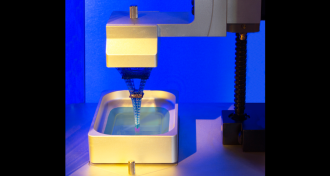 Chemistry
ChemistryNew method leaves older ways of 3-D printing in its goopy wake
Finding the sweet spot in a pool of resin, chemists can create detailed 3-D objects faster than 3-D printers.
By Beth Mole -
 Chemistry
ChemistryCooking up life’s ingredients, all in one pot
An interconnected series of chemical reactions with a few primordial chemicals can cook up all the necessary elements of life
By Beth Mole -
 Quantum Physics
Quantum PhysicsFinding quantum entanglement in a crowd
Physicists have measured entanglement between pairs of photons within a macroscopic beam of light, a first step toward understanding how particles’ quantum connections lead to large-scale effects.
By Andrew Grant -
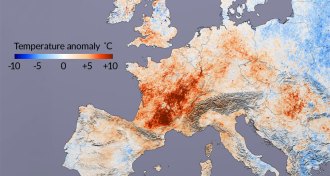 Climate
ClimateArctic warming bolsters summer heat waves
Sagging storms brought on by rapid Arctic warming worsen summertime heat waves across the Northern Hemisphere.
-
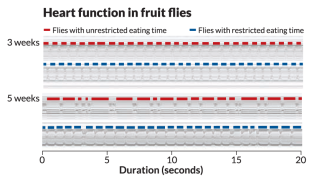 Life
LifeFor healthy eating, timing matters
Limiting eating times improves heart function in fruit flies.
-
 Astronomy
AstronomyAs many as nine new dwarf galaxies found outside Milky Way
A bevy of newly discovered satellite galaxies around the Milky Way could help astronomers study how galaxies form and the nature of dark matter.
-
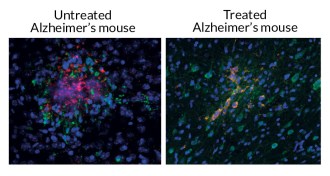 Neuroscience
NeuroscienceUltrasound attacks Alzheimer’s plaques
A new study offers clues to how ultrasound may work as a treatment for Alzheimer’s disease.
-
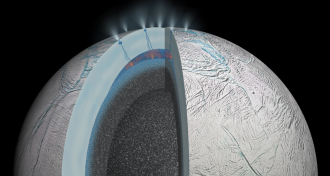 Planetary Science
Planetary ScienceSomething’s cooking on Enceladus
A trail of silicon-rich particles in one of the rings of Saturn points to possible hydrothermal activity on Enceladus.
-
 Neuroscience
NeuroscienceElectrical zap of cells shapes growing brains
The electric charge across cell membranes directs many aspects of brain development, and changing it can fix certain brain birth defects.
-
 Environment
EnvironmentReplacement for toxic chemical in plastics, receipts may be just as toxic
Mounting evidence suggests that BPS, a common chemical in plastics, may cause the same health effects as BPA.
By Beth Mole -
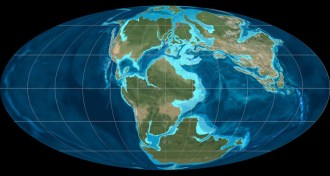 Earth
EarthTethys Ocean implicated in Pangaea breakup
The shrinking of the Tethys Ocean may have broken up the Pangaea supercontinent.
-
 Physics
PhysicsHigh-temperature superconductivity record awaits confirmation
A hydrogen-sulfur compound under pressure may transport electrical current with no resistance at a record high temperature.
By Andrew Grant